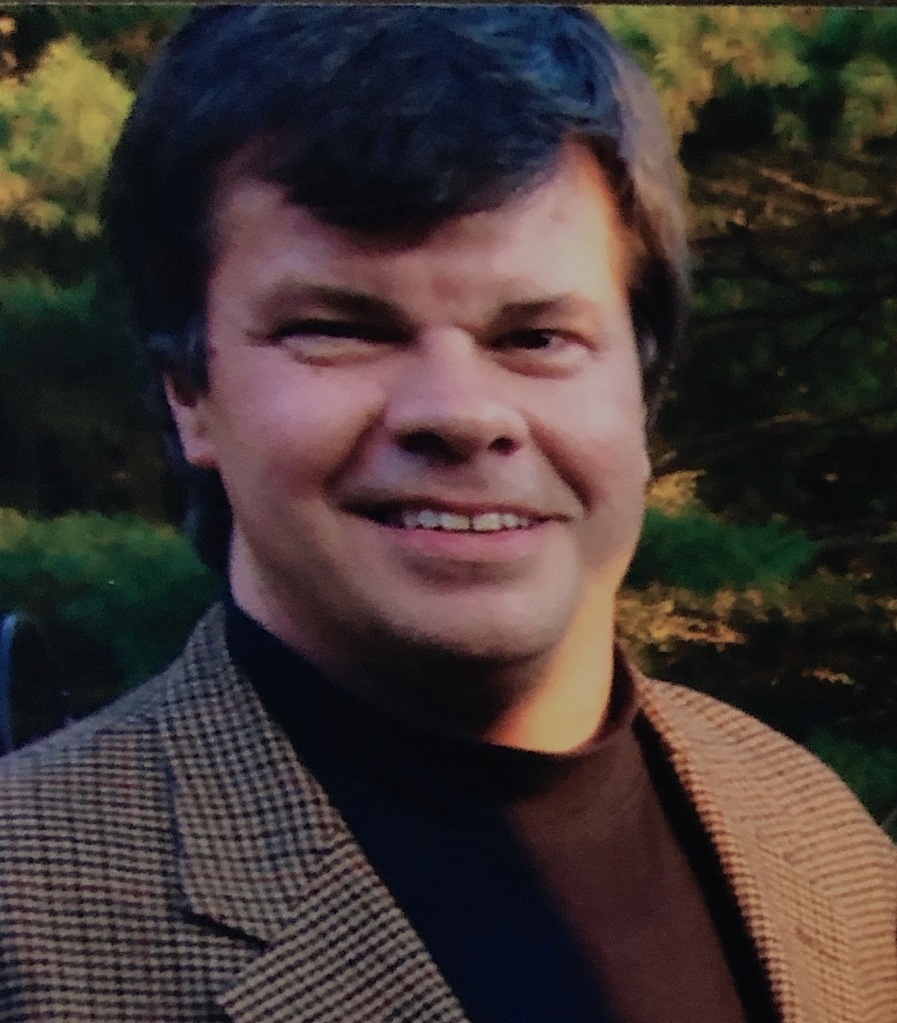
If it is possible to be too good for this world, then my brother was. Paul had no artifice, no game face, no guile. What he did have was a strong intelligence, a mind for details, a gift for the particular. Argue with him at your peril. He had a sharp sense of humor. He made a mean pecan pie and knew how to cook a steak. He had a big heart. (All of his sisters have boxes of Christmas ornaments chosen by Paul every single year.) When he cared about someone, he could be generous to a fault.
Younger than me by nine years, I probably spent more time with him in his first seven years, the years before I left home. It was clear from the time he could smile—and he smiled a lot as a toddler—that he was an innocent. It was his fate to have four sisters, something beyond anyone’s control, but something that affected him nonetheless. Instead of being rough and tumble, he was sweet.
Being a girl, I didn’t think much of it. But I’d hear stories when I came home from college about the petty (and not so petty) torments inflicted on him by kids at school. He wasn’t armored for those early battles (nor the ones to come later). In those days, children were supposed to stand up to bullies all by themselves. I imagine Paul tried harder to be liked. I imagine (since I wasn’t there) that this marked him as vulnerable in ways no one could see (or choose to see) but that he felt acutely. I ache for that boy.
I don’t know when his serious drinking began. The fact is that he was able to hold his drink for decades. Until he couldn’t. But during those decades he was successful, rising to the upper echelons of corporate hierarchies. He ran in, and finished, the New York Marathon. He worked diligently at everything he did. Always with great integrity.
Not all that long ago, Paul told me that I grew up in a different family. At the time, I was a bit hurt. I thought he was saying I wasn’t truly a sister to him. What he actually meant was simpler. The seven-year gap between the two oldest children and the three youngest did create two family cultures. If I was aware of it at all, I was a bit envious of my younger siblings’ relative freedom. My parents seemed to give them more latitude. After all, they didn’t send them to Catholic school, where discipline was strict. Nonetheless, to varying degrees, they also inherited the hobbling combination of self-censorship and pressure to excel that keeps therapists flush.
Paul and I often talked about the difficulty that arises when you free yourself of others’ expectations and then can’t figure out what it is you want to do, what you like to do, because you’ve spent so much time pleasing others. He knew he didn’t have to follow the family script but he never completely escaped it. Alternatives didn’t seem to present themselves; or if they did, their possibilities couldn’t stand up to the idea of the man he thought he was supposed to be. Furthermore, like many sons whose fathers’ love seems qualified, Paul patterned much of his life on his namesake. His work in aviation insurance was his not so tacit tribute to my father’s time as a Navy pilot and executive at Prudential Insurance. My brother’s last home was near Denton, Texas, the first town my father was stationed in during his stint in the Navy. Hard not to see a pattern.
It humbles me as a parent to see the power we wield. I know my mother, who loved her son deeply, had no idea that her well-meant suggestions were received as cutting criticisms. She truly believed it was her obligation as a mother to speak her mind, never thinking it might be more hurtful than salutary. And I know my father didn’t deliberately set out to undermine his only son. But he was of the generation that didn’t give much thought to the psychology of parenting. Like so many of his contemporaries, he thought it was his job to prune out undesirable qualities he secretly recognized as his own. A child’s nature came in a poor second to a parent’s nurture. Even so, Paul never held it against them. He didn’t ask for much. He once told me that being content was enough. Tragically, holding on to that peace of mind, while wrestling with his disease, proved too much. I miss him.
Susan;
Thank you so much for this.
I had not spoken to Paul for a while. Yesterday I asked a co worker if they knew where he was. He responded that Paul had passed last November. I then found his obituary and was sent this essay. Both reflect the wonderful person he was.
I knew Paul for about 25 years, much of that time we worked for the same firms. I’m so saddened to hear of his passing. He was a great guy. He and I were both in the club. We occasionally attended meetings together. He and I last spoke on the phone when he was job searching. Afterwards I had heard he was struggling again and wish now I had reached out to him. I’m sorry I didn’t.
You and your family are in my prayers.
Rest assured I will be reading “War Stories”.
Best
Ray Duffy
LikeLiked by 1 person
Sorry I didn’t see this til now, over a year after you posted it. I still miss Paul and I was touched to get your note however belatedly.
LikeLike